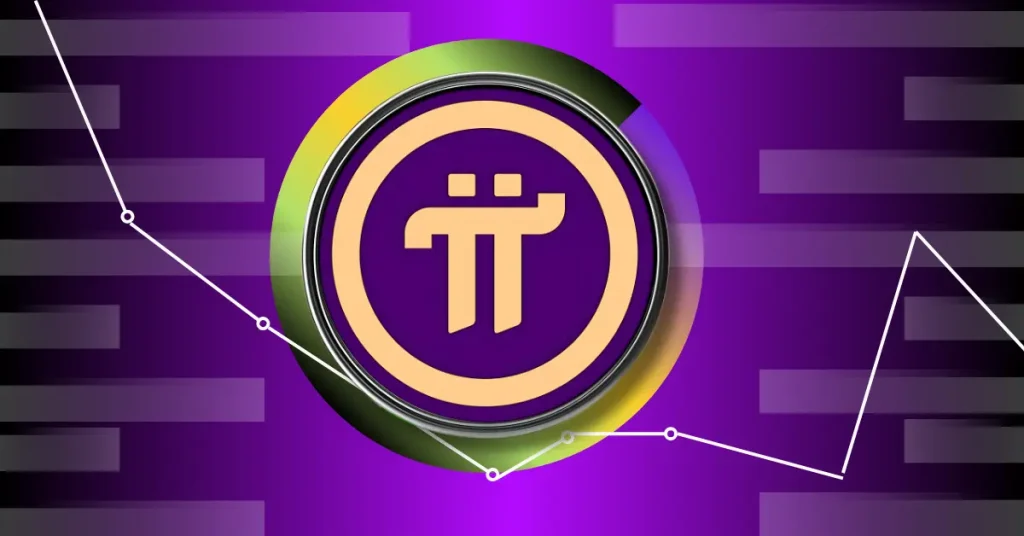
The post Crypto Regulations in Italy 2025 appeared first on Coinpedia Fintech News
Italy has established an organized framework for crypto regulations as part of the European Union (EU). Driven by the EU’s Market in Crypto Asset Regulation (MiCAR) standards, Italy can now benefit from the provisions of investor protection, transparent practices, and stablecoin guidelines, contributing to a secure environment for crypto and other digital currencies.
As of 2025, Italy has implemented a few regulations on taxes and licenses to develop the framework, aligning it with global standards.
Table of contents
Crypto Regulations in Italy
June 25, 2025- Law Decree 95/2025
- The Italian government published in the Official Gazette (official publication of the government) on June 30 that it has passed the law Decree with number 95/2025.
- The provision extends the time for virtual asset service providers (VASPs) registration and license operating in Italy to December 30, 2025, which was initially set for June 30, 2025.
June 4, 2025- Decision No. 330
- The Italian data protection authority, the Garante, provided important clarifications regarding the requirement for collecting valid privacy consent to process personal data for marketing purposes.
- This law likely applies to crypto, particularly in the context of crypto asset service providers (CASPs) and the handling of personal data within the crypto ecosystem.
January 1, 2026- Crypto Tax
- Under the new budget law of Italy, the capital gains tax on crypto has increased to 33%. However, there is still a possibility that it will be brought back to 26%.
- It also abolishes the law of “only exceeding €2,000 is taxed,” which will take place from next year.
What the Italian Government is saying about Crypto in 2025?
As of 2025, the Italian government is embracing cryptocurrency while tightening security, ensuring investors’ protection. With stricter regulations, it is focusing on:
- Compliance with MiCA: The Italian government approved a legislative decree in 2024 to adapt national legislation to MiCA regulation, aiming to enhance transparency, investor protection, and the management of financial assets.
- Compliance with OAM: It is forcing all crypto business operators to join the Organismo Agenti e Mediatori (OAM) system for anti-money laundering (AML) compliance.
Crypto Tax in Italy 2025
| Tax Year | Capital Gains Tax | Emeption | Alternative Tax Option | Wealth tax |
| 2025 | 26% | €2,000 | 18% of asset value | 0.2% |
| From 2026 | 33% | None | 18% of asset value | 0.2% |
- New Tax Proposal of 2025: A higher tax rate of 42% was proposed this year, but was not implemented following industry criticism.
- Taxable Events: Selling crypto for fiat, using crypto to pay for goods and services, and receiving crypto as payment are considered taxable under Italian law.
- Uncertain events: Some events like– Bitcoin mining, airdrops, NFTs, lending, staking, bounties, hardforks, and receiving crypto as a gift– are not clarified whether they are subject to tax or not.
- Reporting Deadline: Crypto taxes must be reported to Agenzia Entrate by October 15 each year.
Crypto License in Italy 2025
In Italy, crypto asset service providers (CASPs) must comply with MiCA’s EU-wide licensing requirements and register with the Financial Services Supervisory Authority (CONSOB) for local operations. Existing CASPs registered in Italy have until 30 December 2025 to apply for authorization under MiCA.
Crypto exchanges, digital wallet providers, and other entities providing crypto-related services need to adhere to strict anti-money laundering (AML) and know your customer (KYC) compliance.
Types of Crypto Licenses in Italy
- Crypto exchange and storage license: Allows companies to exchange crypto and store digital assets on behalf of customers; this can be combined with a wallet to store assets.
- License for stablecoin: Companies operating with stablecoins or issuing stablecoins linked to real assets can apply for such a license.
- License to issue digital securities: It allows companies to issue digital securities, such as stocks or bonds.
MiCA also published guidance on ‘how to apply for a crypto license.’
Crypto Adoption in Italy 2025
- Crypto adoption rate: Over 3.6 million Italians will hold digital assets, including cryptocurrency, in 2025, as predicted by the experts. User penetration rate is expected to be 27.98% in 2025 and is anticipated to increase to 28.93% by 2026. The user rate of cryptocurrency is forecasted to reach 17.05 million by 2026.
- Crypto Revenue: Projected revenue for crypto in Italy is expected to be US$3.0 billion in 2025, which is expected to experience an annual growth of 3.03%, resulting in US$3.01 billion by 2026.
Conclusion
Driven by concerns over public debt, centralized financial control, and economic instability, Italians are prompted to explore cryptocurrency, especially Bitcoin, in 2025. With growing interest in virtual assets, the government felt compelled to enact stricter laws to maintain a balance between security and innovation. Now, Italy is gradually aligning with global trends in cryptocurrency, from regulations to adoption rate, it appears to be getting closer to global standards.
[article_inside_subscriber_shortcode title=”Never Miss a Beat in the Crypto World!” description=”Stay ahead with breaking news, expert analysis, and real-time updates on the latest trends in Bitcoin, altcoins, DeFi, NFTs, and more.” category_name=”Crypto Regulation” category_id=”6″]FAQs
Yes, Italy accepts crypto for both payment and investment purposes. Cryptocurrencies are legally recognized as digital assets, though not legal tender. More businesses in cities like Genoa, Milan, and Florence are accepting crypto payments, and the country has one of the highest on-chain transaction volumes in the EU.
Italy is increasingly crypto-friendly, especially with its adoption of the EU’s MiCAR framework in 2025. This provides a clear legal foundation for crypto, focusing on investor protection and transparency. While regulations are tightening, they aim to foster a secure environment, making Italy welcoming for crypto enthusiasts within defined legal boundaries.
In Italy, crypto taxes are paid via a “self-assessment” method through your individual tax return, typically using the LIFO (Last In, First Out) accounting method. Capital gains are considered “miscellaneous income.” Crypto taxes must be reported to Agenzia Entrate (the Italian tax authority) by October 15 each year.
Several countries currently have no or very low crypto taxes for individuals, making them attractive for crypto investors. Examples include Monaco, the UAE, Portugal, Malta, Singapore (no capital gains tax), Gibraltar, El Salvador (Bitcoin legal tender), and Belarus. Some of these may still tax crypto if it’s considered business income.

 6 hours ago
9
6 hours ago
9














 English (US) ·
English (US) ·